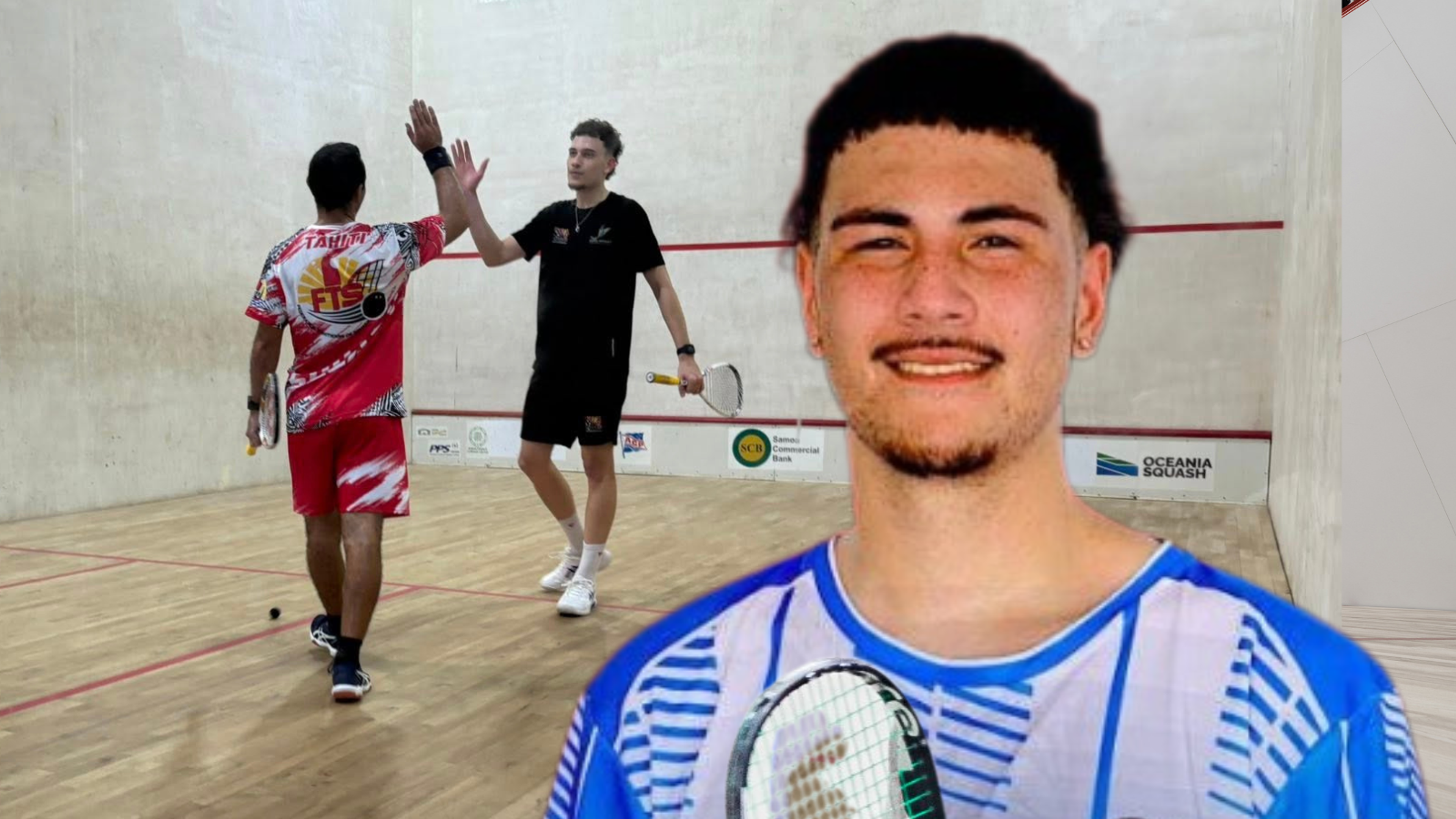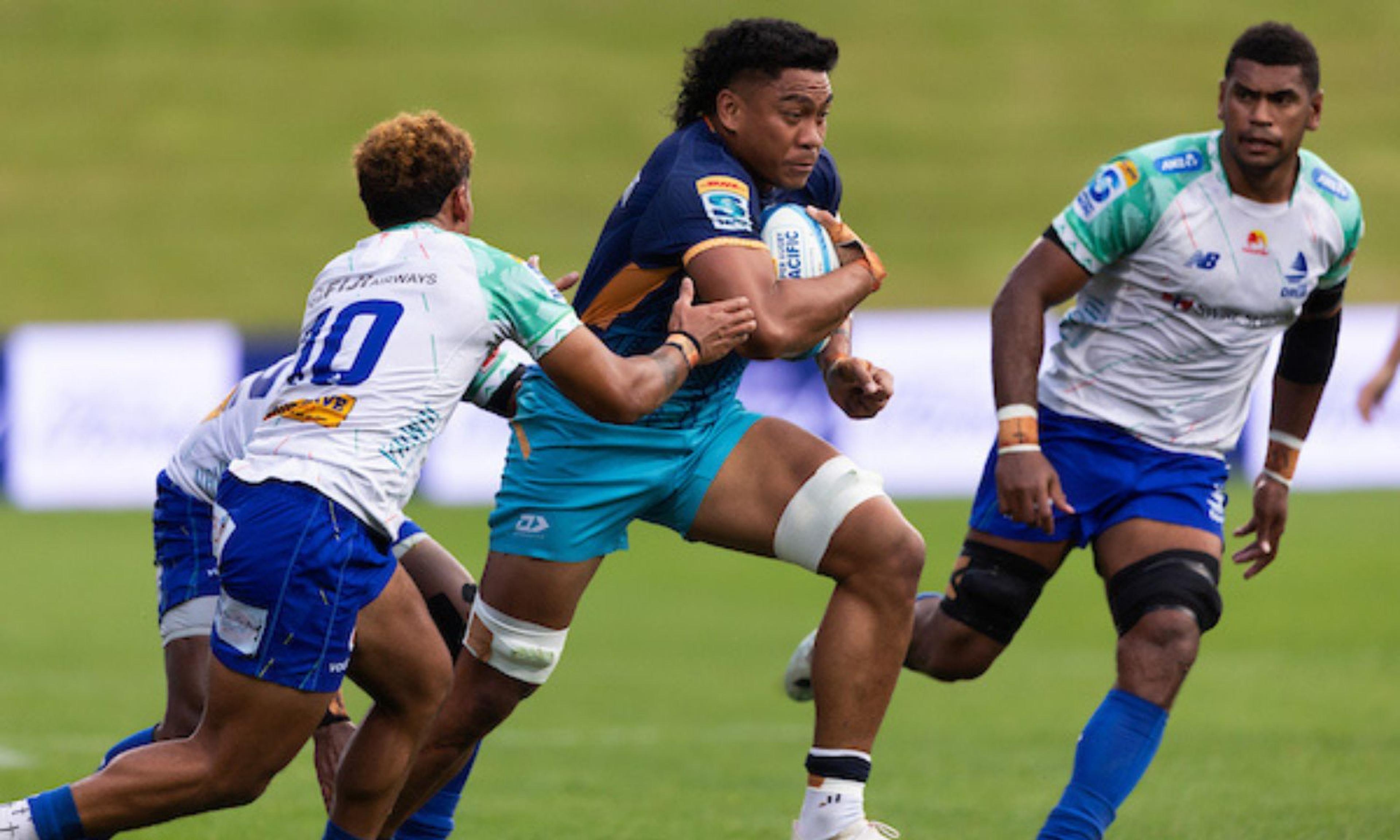

Jeremiah Manele has survived moves to oust him as Prime Minister of the Solomon Islands.
Photo/WTO/Jessica Genoud
Solomon Islands PM survives attempts to topple his leadership
A motion of no-confidence was withdrawn after backroom manoeuvring allowed Jeremiah Manele to hold onto a majority in parliament.


Last-gasp drama and big statements set up Pacific blockbuster in Super Rugby opener

A.R.T sets new Pacific music pace with ‘First Thursday’ releases



Last-gasp drama and big statements set up Pacific blockbuster in Super Rugby opener

A.R.T sets new Pacific music pace with ‘First Thursday’ releases

Solomon Islands Prime Minister Jeremiah Manele defeated a no-confidence vote against him without a ballot in Parliament on Tuesday.
Manele held onto a majority in the House, prompting opposition forces to withdraw the motion, which was due to be debated on Tuesday.
He thanked Gordon Darcy Lilo, the Central Honiara MP, who moved the no-confidence motion and urged it to be withdrawn "in the national interest". "It means putting our country first," Manele told parliament.
The bid to topple his leadership came from his predecessor and former Finance Minister, Manasseh Sogavare, who was on the out after a political coup failed.
Earlier in the day, parliament postponed the vote against the Prime Minister, who seemed to have gained enough support to stay in power.
Manele, who has been in office for less than a year, faced a challenge last week when 10 members of his government, led by Finance Minister and former prime minister Manasseh Sogavare, decided to leave and criticise the Prime Minister.
Manele served as foreign minister in Sogavare's administration from April 2019 until Sogavare stepped down as PM and declined to seek another term.
The group accused Manele of being indecisive and not strong enough as a leader. But on Monday, things changed, as several opposition members switched sides to support Manele.
In preparation for the possible vote, schools were closed and security heightened in the area, especially in the capital city, Honiara. In the past, political issues like this have led to protests and riots, but police reportedly suggested that unrest is unlikely this time.

Manasseh Sogavare. Photo/Office of the President, Republic of China (Taiwan)
Local media reported that the Education Ministry decided to close schools in Honiara after receiving requests from local officials.
Dr Franco Rodie, the permanent secretary for Education, says that due to the unpredictable political climate, it was safer for students to stay at home.
"We are giving education providers the final decision, so it looks like all the schools within Honiara will be closed," he told the SIBC.
Sogavare, who has been prime minister multiple times, managed to gather support from some prominent opposition leaders such as Matthew Wale, Darcy Lilo, and Peter Kenilorea Jr.
But local media reported on Tuesday morning that parliament's agenda for the day did not include the Darcy Lilo's motion, suggesting it might have been removed.
The parliamentary session was scheduled to start at 10am, local time (11am NZ time), but the Speaker Patteson Oti postponed the meeting for over an hour, saying that discussions would not begin until the afternoon.
On Monday, Prime Minister Manele shared a photo showing him with 27 other supportive MPs, implying that he had managed to persuade them back to his side.
"Members of the (government) coalition convened this afternoon in a caucus meeting at cabinet," In-depth Solomons reported Manele as saying. "They reaffirmed their unity and preparedness to face tomorrow's vote."
One of the MPs who left the government, Claudius Tei'ifi from Malaita, mentioned that he was concerned about the slow progress of an Australian government-backed tuna processing plant project in his area.
Senator Penny Wong, Australia's foreign minister, deferred when asked whether she was concerned about the political standoff in Honiara.
"These are matters for the people and the parliament of the Solomon Islands. It's a sovereign country," she told ABC Radio National.